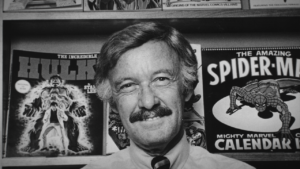Border Justice: ‘The Three Burials of Melquiades Estrada’
Tommy Lee Jones revives the western with his feature film debut about justice, redemption and relations with our neighbor to the south.
When I was 25 years old and knew everything, I headed south for my first trip to the Texas/Mexico border. I was East Coast bred, politically active, freshly armed with the teachings of Edward Said and Karl Marx, and ready to take on some real live racist rednecks. I saw one the very first day, in front of a diner. Thin red hair, freckled, jowly, chewing his tobacco hard like Rod Steiger in “In the Heat of the Night.” He had Steiger’s cold stare too, and looked me up and down before turning away, climbing beer belly over spurs into the cab of a yellow pickup. As he drove off, I caught a glimpse of a rifle and three cases of Coors (of course!) in the cab, and then finally the inevitable bumper sticker.
The sticker read: THIS IS AMERICA, GODDAMNIT…. LEARN SPANISH.
The only American who speaks Spanish in Tommy Lee Jones’ masterful directorial feature film debut, “The Three Burials of Melquiades Estrada,” is the character Jones himself plays, Pete Perkins. Pete is a cowboy whose closest friend, Mel, has just been shot to death while tending his goats. Since Mel, the Melquiades of the title, was not only a “wetback,” according to an uncaring local sheriff (Dwight Yoakam) but an illegal worker as well, Pete is left to seek justice for Mel. He soon locates the killer — a trigger-happy border patrolman named Mike Norton (Barry Pepper) — and decides, in classic western style, to take justice into his own hands. He kidnaps Norton in the middle of the night, beats him and forces him at gunpoint to dig up Melquiades’ body.
This is only the first of a series of humiliations Norton will face in Pete’s hands, as Pete drags him along, cursing, spitting, handcuffed and on horseback, to take Mel’s body to his hometown in Mexico. Norton will also be forced to suck down ethanol, wear Mel’s work clothes and sleep inches away from his rotting corpse. But we don’t mind, because we know who the good guys and the bad guys are. We’ve already come to know and love the living Melquiades in flashback, and hate Norton, a porn-addled borderline sociopath whom we’ve already watched break a woman’s nose — on the job — and enjoy it. The setup is pure Peckinpah, and it’s what westerns are all about. Peckinpah knew, with his intuitive understanding, that violence and her cousin, vengeance, are at the core of the American psyche; he gave our bloodlust back to us in orgiastic explosions of ballet-like violence. The hero’s job is to kill. Sometimes the reason is to save lives, sometimes the reason is revenge — but the reason isn’t really what he’s about; what matters is the killing.
Pete Perkins, however, is a cowboy, not a gunslinger. In an interview with Terry Gross, Jones described him as a “Buddhist stuck in a Calvinist world.” As the three men (I say three because even as a corpse, Melquiades is a warm, breathing presence in the movie, kept alive not only by memories but also the grieving Pete’s unwillingness to let go) journey deeper into Mexico searching for Mel’s hometown and family, and as an increasingly desperate Norton gets beaten up, physically and emotionally, by the land, its animals and finally its people, we realize that Pete is searching for justice, not vengeance.
Vengeance as justice is the theme Eastwood himself brought to the level of the sublime in his second directorial effort, “High Plains Drifter,” and then decades later with his more polished but also almost unbearably sanctimonious “Unforgiven.” In “Unforgiven,” our greatest gunslinger announces that killing isn’t worth it, and that killing is bad, even if you’re killing to avenge the murder of your best friend, even if that friend is Morgan Freeman. It was exactly the kind of American preaching that leads straight down the aisle toward Oscar, as we can see by the issues-driven nominated films of this season, in which our top directors declare, earnestly and photogenically, that hate and violence are really bad things.
“The Three Burials of Melquiades Estrada,” however, is a better, more thoughtful and finally much more necessary film than any of this year’s best picture nominees, not only because of Jones’ light touch and sense of place — he was born and raised in West Texas — or because of Chris Menges’ electrifying cinematography, which teaches us something new about light in every scene, or not even because of the remarkable chemistry between Pepper and Jones. No, Jones’ movie is the first western that actually wrestles with the great dilemmas of our time, not only on the border but also as we wage our own Calvinist wars across the globe. Instead of settling for sad finger-wagging about prejudice and “cycles of violence,” it actually presents an alternative — an idea of earned forgiveness, even redemption.
Furthermore, Jones and screenwriter Guillermo Arriaga (“Amores Perros,” “21 Grams”) have teamed up to make a magical and often extremely funny movie about, among other things, the ties between Mexico and the United States. As the border wars grow more and more bitter, and “illegal immigrants” become more and more a part of the national economy (see Time magazine’s cover story this week), “The Three Burials of Melquiades Estrada” offers another message for consideration: This is America, goddammit, learn Spanish.
Independent journalism is under threat and overshadowed by heavily funded mainstream media.
You can help level the playing field. Become a member.
Your tax-deductible contribution keeps us digging beneath the headlines to give you thought-provoking, investigative reporting and analysis that unearths what's really happening- without compromise.
Give today to support our courageous, independent journalists.






You need to be a supporter to comment.
There are currently no responses to this article.
Be the first to respond.